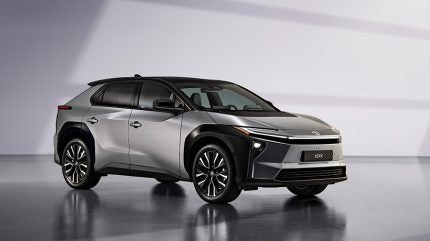
Toyota Motor Corporation announced it plans to delay construction of a planned battery plant in Japan until further notice, in response to slower-than-expected demand for battery electric vehicles (BEVs).
Toyota Battery Company, the battery subsidiary of Japan’s leading automaker, was scheduled to begin construction of the plant in Fukuoka Prefecture this year, with a target to begin battery production in 2028. Construction has now been pushed back to a later date, with a source close to the company claiming the timing is now “undecided.”

Discover B2B Marketing That Performs
Combine business intelligence and editorial excellence to reach engaged professionals across 36 leading media platforms.
Separate reports suggested that an agreement on the location of the plant was supposed to have been finalized by April, but this has now been put back until sometime in the autumn. The plant was designated to produce next-generation batteries that could provide a driving range of up to 1,000 km on a single charge. The automaker is said to remain committed to building the facility, but is now reevaluating what will actually be produced there.
Toyota President Koji Sato told The Governor of Fukuoka, Seitaro Hattori, directly of its change of plans.
Toyota sold a total of 4.53 million electrified vehicles globally last year, accounting for 42% of the group’s global vehicle sales, but most of these were hybrid electric vehicles. Its global BEV sales amounted to just 140,000 units, a 34% increase on the previous year’s volumes. Toyota had previously set a target to sell 1.5 million BEVs per year globally by 2026, but this now looks overly ambitious.






